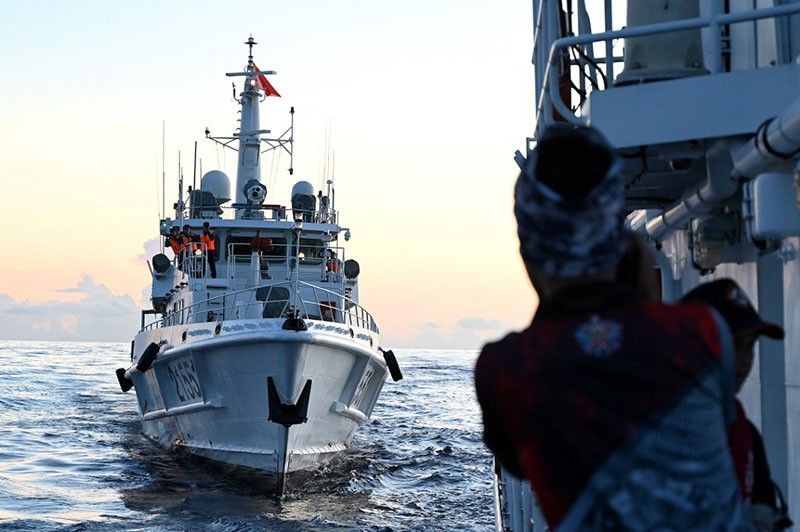Measurable security progress for 2024

In the security realm, the year 2023 brought in a new wave of issues and risks for the Philippines, disrupting its existing geopolitical landscape.
In response to this phenomenon, new plans and strategies that aim to achieve a peaceful and stable region and country are being generated. In the long run, measurable progress must result from these initiatives.
In maritime security, the issues in the West Philippine Sea continue to be a top concern.
As of October 2023, 54 diplomatic protests have been filed against the illegal actions of foreign vessels within the country’s maritime territory. This includes the increase in the number of foreign ships swarming in the area, averaging 400 daily.
In addition, serious challenges include the pointing of military-grade lasers, the water cannon incidents, and the destruction of coral reefs. Even more alarming is the collision incident between Chinese and Filipino vessels.
The Philippines has shown determination to address these challenges by adopting a transparency strategy in the West Philippine Sea. It aims to inform the general public and the international community of the issues in the area by choosing to raise public awareness of any developments in the area.
Amidst new aggressive tactics, the Philippines knows how to harness its existing tools. The release of regular and timely statements and reports released by the Philippine officials contributes to garnering national and global support for its legal and recognized claim in the West Philippine Sea. It also fuels the condemnation against any aggressive and coercive actions by foreign entities within the country’s territory.
While statements of support for the Philippines have poured in since 2016, a maritime cooperative activity was finally exercised by Australia and the United States, on separate occasions, in the area. In 2023, states are finally walking the talk. The conduct of such activities intensifies the Philippines’ ties with like-minded states, and the commitment to a rules-based international order.
These developments were reflected in the last defense roundtable discussion hosted by the Stratbase ADR Institute on November 28. The sessions are in partnership with the Australian Embassy and the Embassy of the Republic of South Korea in the Philippines.
South Korean Ambassador Lee Sang-hwa and Australian Deputy Head of Mission Dr. Moya Collett highlighted the common interest in securing the maritime architecture through cooperation. Furthermore, CG ADM Ronnie Gil Gavan joined the discussions and reiterated the commitment of the Philippine Coast Guard to work with relevant agencies to secure the West Philippine Sea and to stand up against illegal activities in the area.
With its experiences in maritime security, the Philippines is elevating its role in the Indo-Pacific – moving from a small state narrative to a middle power player. With the international community on its side, the country is finally playing the cards to its favor, leveraging on the international recognition of its arbitral victory and countering misinformation tactics by informing and allowing the public to participate in security discussions.
This year as well, President Ferdinand Marcos Jr. is expanding the security direction of the country, referring to national security, economic security, and now, cybersecurity. This expansion of the security mindset in political leadership will reinforce cooperation in these areas and prompt fast capacity-building efforts.
Since the beginning of his term, Marcos has met with various state and business leaders where diplomatic, military, and economic ties have deepened. These official in-person meetings resulted in job and investment pledges.
As we move towards 2024, which is the Marcos administration’s third year in office, it is time to see these promises come to fruition. The strong statements must transform into effective actions. The foreign and security policies of the administration must be in their full implementation phases.
Until the end of Marcos’ term, measurable progress must be gained from these engagements. This can be in the depth of bilateral relations, the developments in modernization ambitions, and even in the reduction, if not cessation. of illegal and aggressive actions against the country in the West Philippine Sea.
In the next year, maritime security will remain a priority for the Philippines. It remains a foundation for cooperation for the Philippines with like-minded states.
However, this does not prevent new risks from emerging. Disruptions will continue, as is seen with the rapid rise of technology and cyber attacks. At this point, security policy conversations and plans will further develop. A rules-based international order now encompasses the economic and digital order.
In all these developments, cooperation will remain a critical factor in state relations as geopolitical and geoeconomic disruptions shape the Philippines and the Indo-Pacific. The benefits of cooperation certainly outweigh the complexities of an evolving security landscape.
Alynna Carlos is a program manager at the think tank Stratbase ADR Institute.
- Latest



























